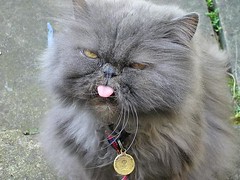The aspect of this book that stood out the most for me was how Shevek came to clearly recognize what he considered utopia, but never thought of it as flawless. He believes whole-heartedly in the Odonian ideals, but admits that Anarres has strayed from them. When he goes to Urras, he admires the beauty and the efficiency produced by excess and authority, and even cautions the revolutionaries who wish to adopt Odonian ideals that life on Anarres is poor and without luxury, but never backs down from his belief that even a poor but free existence in the deserts of Anarres is better than a governed life in the hierarchical world of Urras, where even the revolutionaries lock their doors.
Shevek is a practical idealist. Though he believes whole-heartedly in Odo's teachings, he recognizes that Odo herself never left Urras, and that the application of her theories to life on Anarres have been twisted over the years. Yet though he sees that Anarres has drifted into having some sort of government, and though he beliefs the revolution has become old and stagnant and requires another (or continued) revolution to revitalize it, he doesn't blame the people on Anarres. They believe in what they are taught, and he does not fault them for not recognizing the difference between Odo's teachings and what they learned it school - just like the students on Urras who come to his lectures though they don't understand his physics.
Something else I found very interesting was Le Guin's inclusion of humans from Earth - Terrans. Through the humanoids of Anarres and Urras, she comments on human nature and examines two extremes of social organization (anarchy and hierarchy), but the history of the Terrans is a reflection of her opinion of the direction of our actual society. If we continue in our unchecked consumption, as the Terrans did, our Earth will be used up and ruined. Le Guin portrays the Terrans' excess as even worse than that of Urras. It is a short note to the larger plot, but a chilling and cautionary one.
Subscribe to:
Post Comments (Atom)

No comments:
Post a Comment